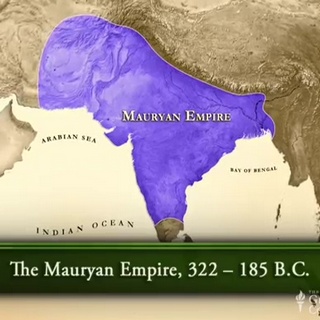
The 12th lecture in the Great Minds of the Eastern Intellectual Tradition by Dr. Grant Hardy of the University of North Carolina looks at two great thinkers in the early historical period: Kautilya and Ashoka.
The author of Arthasastra has often been maligned as the Indian Machiavelli, but in fact the advice he gives in his book towards the pursuit of the good is much more than a cynical advice on how a King can stay in power, see the regime he lays down for Kings, which is very strict and hard, and really makes him a servant of the people, not the other way round.
On the other hand King Ashoka’s place as a great thinker is already assured, thanks to his having carved his advice in stone, and it having come down to us to this day. One of the great monuments of statesmanship, Ashoka’s words and practice stand out as a shining example of good Buddhist kingship even in the present day.
Prof. Hardy also discusses other matters in this lecture, like the differences between Indian and Chinese philosophy, the four stages of life and the right aims in life, including kama, or sensual pleasure, as embodied by another misread text, the Kamasutra.
if the video does not appear on the page, try reloading the page; and if that doesn’t work, leave a comment so I can update the page (the comment is not published)
to see an album of screenshots click here